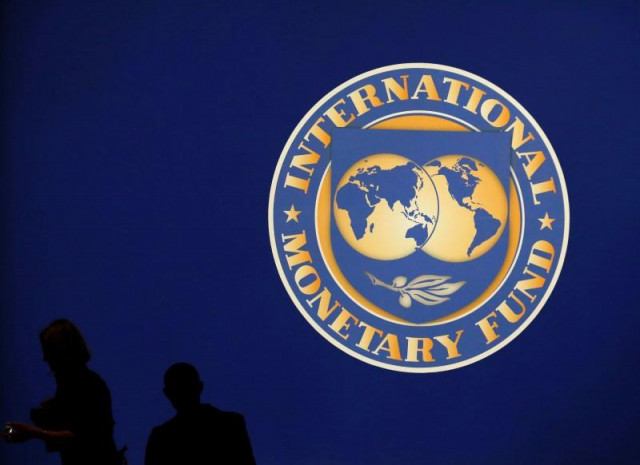Imran's govt may seek IMF nod for fixed tax regime
Committee formed to discuss issue which will give boost to construction sector

PHOTO: REUTERS
In this regard, the Association of Builders and Developers of Pakistan (ABAD) sent a letter to the IMF a couple of days ago for a separate meeting to explain how the fixed-tax regime would be beneficial to generate higher amount of tax revenue for the government.
Earlier, the Federal Board of Revenue (FBR) had worked out modalities and mechanism for the regime. However, IMF conditioning under its latest $6 billion loan programme restricted the government from moving forward with the plan.
Prime Minister Imran Khan constituted a high-powered committee on Friday to deliberate upon the fixed-tax regime with representatives of ABAD.
“Adviser to PM on Finance and Revenue Abdul Hafeez Shaikh is the chairman of the committee. He is scheduled to chair a meeting in this regard on Monday. FBR Chairman Shabbar Zaidi is one of the three-four members of the committee,” ABAD former chairman Muhammad Hasan Bakshi told The Express Tribune. He was among the businessmen who met with PM Imran at the Governor House, Karachi, on Friday.
Earlier in October, the FBR worked out a fixed tax of Rs210 per square foot to be paid by the builders and developers on the construction of commercial buildings nationwide. The rate for residential buildings would vary from city to city, while a waiver of up to 90% would be available on low-cost housing schemes.
The tax would be paid in advance. The construction of each building would be completed in a maximum of three years.
The fixed-tax regime is proposed to replace the 33% tax on income from construction projects and an advanced tax on services being paid by the builders and developers at present. The tax would also bring an end to the assessment of projects by the FBR and close the door for bribes and corruption.
“We have assured PM Imran that the fixed-tax regime would double the amount of tax revenue for the government compared to the highest-ever taxes collected from the construction sector in any of the past 72 years,” said Bakshi, who is also a member of the prime minister’s task force on housing.
“He (PM Imran) has checked with the FBR chairman …the fixed tax would double the amount of tax revenue from real estate….generate construction activities and help document the economy,” said Arif Habib Limited, Chairman Arif Habib, who was also present in the meeting.
While talking to the prime minister, Habib said that reports suggested the IMF had some reservations against the fixed-tax regime and he expressed hope that the prime minister and his economic team would resolve the issue with the lender. “They (PM and his economic team) were positive,” he said.
Bakshi added that the government has amended the civil aviation laws to allow construction of taller buildings in Islamabad and Lahore. However, the same is yet to be done in the case of Karachi. “The prime minister has assured us he will allow construction of taller buildings in Karachi (as well).”
He said there were some areas in Karachi where builders and developers cannot construct a building beyond the height of 20-40 feet. “We are not flying old planes which need 20 feet height. The Civil Aviation Authority should improve its equipment at Karachi airports if there are some issues,” he said.
The tallest building of the country - which is around 62 floors - is located at the costal belt of Karachi.
Foreign exchange
Habib said that the prime minister also responded positively upon his suggestion that the government should supply subsidised gas to two fertiliser manufacturing units, which have been lying closed these days. “The resumption of manufacturing would help earn foreign exchange worth $250 million, as the two units would export the fertiliser,” he added.
He said one unit of Fatima Fertiliser and another one of Agritech are lying closed due to no supply of gas, which remains a basic raw material, he said.
Tourism, mining
Apart from this, PM Imran also flagged potential investment areas like tourism and mining to the business community. “Switzerland earns $80 billion from tourism industry in a year.
The size of Pakistan’s northern areas of tourism spots stands double than the Switzerland. Tourism sector of Pakistan has enough potential to attract huge foreign currency inflows,” Habib quoted the prime minister as saying.
Published in The Express Tribune, December 29th, 2019.
Like Business on Facebook, follow @TribuneBiz on Twitter to stay informed and join in the conversation.


















COMMENTS
Comments are moderated and generally will be posted if they are on-topic and not abusive.
For more information, please see our Comments FAQ